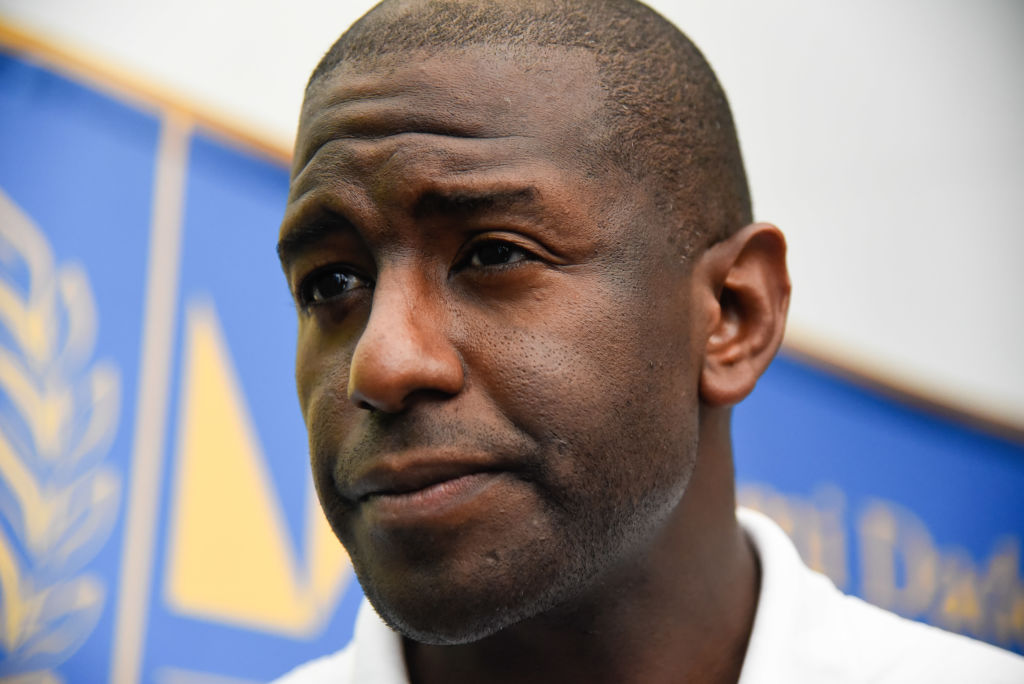On Tuesday, American voters will give the president his first official performance review. There will be no opportunity to tell Donald J. Trump ‘You’re fired!’ in the reality TV verbiage he relishes – that will have to wait two more years – setbacks for the Republicans in Congress will inevitably be interpreted negatively for The Donald, who has pulled out the stops exhorting his loyal fanbase to the polls on November 6.
But will it happen? American political history is filled with stern midterm rebukes for presidents, especially Democrats who get ahead of their skis like Bill Clinton in 1994 or Barack Obama in 2010, when their party lost 54 and 63 seats in the House of Representatives, respectively.
Few expect such a historic setback to hit the GOP this year, though broad Beltway consensus has it that the Republicans may well lose control of the House, where the opposition needs to win only 23 seats to ‘get gavels’ as Hill wonks put it.
That’s an alarming prospect for the beleaguered White House, since Democratic control of committees, above all the House Permanent Select Committee on Intelligence, promises subpoenas and investigations of President Trump’s Kremlin ties beyond the existing Special Counsel inquiry led by Robert Mueller for the Justice Department. For the last two years, the Republican-controlled HPSCI, chaired by the obsequious Rep. Devin Nunes, a full-bore Trumpist, has kept that powerful committee off Trump’s back.
If House control lands with Democrats, the HPSCI will be led by Rep. Adam Schiff, an even-tempered yet dogged investigator who, in a previous life as a Federal prosecutor, sent a rogue FBI agent to prison for spying for the Kremlin. Chairman Schiff would be nothing short of a new year’s nightmare for the White House, while other Democratic-led House committees could be expected to follow the HPSCI’s lead with their own investigations into an array of alleged Trump misdeeds, from his clandestine antics with Russians to misuse of the presidential office for personal profit.
The good news for President Trump in the midterms, such as it exists, is that the Senate plays the pivotal role in impeachment proceedings, and there’s every sign that the GOP will maintain its hold on Congress’ senior chamber. Indeed, it’s looking increasingly likely that the Republicans will pick up a couple Senate seats, which would go a long way to counterbalancing the GOP’s widely expected loss of the House.
Then there’s a whole range of state-level elections at which the Democrats may recoup some of their grave losses of the last decade. Yet what’s seldom noted in the media is to extent to which the Democrats collapsed as a national party under two terms of Barack Obama. Between 2008 and 2016, the party had a net loss of nearly a thousand seats in state legislatures, leaving Republicans in control of roughly twice as many state houses as Democrats. Governorships have proved hardly better for Democrats.
If Tuesday restores the Democrats as a nationwide force, rather than merely a party of the coasts, urban enclaves and college towns, that would be a Blue Wave indeed. Some state-level races this year are as bitter as anything in Washington.
Take Florida, where the hotly contested governor’s race has Andrew Gillum, the African-American mayor of Tallahassee, running neck-and-neck with Ron DeSantis, a Republican congressman and MAGA enthusiast. Ethics problems notwithstanding, Gillum has been heartily embraced by many Democrats. As both parties have moved towards their fringes since 2016, Gillum’s strident left-wing politics are no bar to possible victory, just as DeSantis’ boastful Trumpism motivates many on the Right. Smart money is watching Florida on Tuesday as a 2020 preview.
For the Left, the midterms are all-important, a chance for the vaunted Resistance to rebuke Donald Trump for, well, being Donald Trump. Social media anger is no substitute for actual voters, however, so it remains to be seen whether Democratic enthusiasm, which nobody doubts is unusually high for an off-cycle election year, will translate into the Blue Wave of progressive dreams.
Throughout the summer, Republicans were in the doldrums, nervously anticipating the midterm bloodbath that the media was confidently predicting. Then the Brett Kavanaugh saga enveloped the nation’s capital, resulting in Democrats overplaying their hand and demonstrating some of their worst political habits for the cameras. President Trump got his beleaguered nominee to the Supreme Court and, as a bonus, the unexpected gift of a Republican Party reunited, shortly before the elections, in fear and loathing of the Left.
Can that fragile unity hold until Tuesday? Have the president’s furious pontifications on illegal immigration, which performed sterling service for him two years ago, energized his base or repulsed moderates?
Some on the Right suspect that the Kavanaugh drama came too early, and more than a few Republicans are fretting about peaking in early October instead of early November. Democratic enthusiasm is a given, while the willingness of Republicans to show up at the polls to back a president many of them don’t like is the great imponderable.
Simply put, if enough Republican-leaning voters – including many who have no love for Donald Trump and perhaps never have – appear on Tuesday, even if more to vote against Democrats than for the GOP, the outcome for the White House may not be too bad. Even losing the House by a few seats, rather than 30 or 40, can be spun as a survivable hit, given how high Democratic expectations were in the summer, before the Kavanaugh case blew wide open.
Therefore, much is riding on Tuesday. For Democrats, major wins in Congress and at the state level will offer hope for 2020, above all that the Trumpian nightmare is merely a temporary interlude in American politics. For Republicans, keeping their losses to a tolerable level could resemble a win, while offering the president a degree of protection from himself. Regardless of Tuesday’s outcome, we can expect Donald Trump to claim credit for any wins while blaming others, above all an insufficiently loyal GOP, for any losses.
Much can happen in politics in just a handful of days, especially in the Trump era. We can expect White House tweets brimming with anger and strange capitalizations, anguished media responses to them, plus ample posturing on all sides. What voters make of all that we will know Wednesday morning.

























